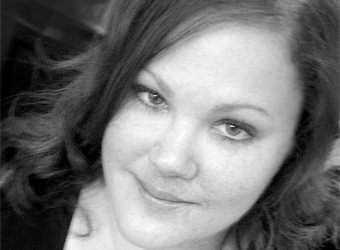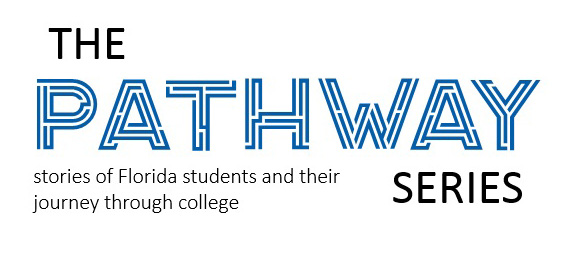This is the fourth in the “Pathway Series” of stories on Melissa Shank, an adult learner in Orlando who is pursuing her bachelor’s degree 20 years after dropping out of high school. Read Part 3 here, which had Shank dealing with some miscommunication related to the courses she needed for her degree. In Part 4, we look back on Shank’s first full year at Rollins College.
Ever since deciding to continue her education almost 20 years after dropping out of high school, Melissa Shank has set about paying her newly-acquired knowledge forward.
Shank, 38, is especially passionate about extolling the virtues of financial aid to her fellow students.
“I see students leaving money on the table and saying things like, ‘I know I won’t qualify for scholarships,’” Shank said. “Well, how do you know if you won’t try? And why pay for it (college) if people are willing to help pay for it for you? There’s definitely money out there for students to go to school.”
Once upon a time, Shank was the sort of student who believed she wouldn’t qualify for financial aid: a felony conviction from her past made her hesitate as she completed the Free Application for Federal Student Aid (FAFSA).
“I checked the felony box, and I applied for it anyway,” said Shank, who qualified for a full Pell Grant. “I really thought I wasn’t going to get it.”
Shank secured a combination of grants and scholarships from her college — along with state and federal sources — to pay for her tuition at Rollins, including the Florida Effective Access to Student Education (EASE) Grant (worth $3,500 for the 2018-19 school year), the Florida Student Assistance Grant ($1,800), a Pell Grant ($4,572), a Federal Supplemental Education Opportunity (SEO) Grant ($300), and the private Rita K. Roney Scholarship ($4,500).
Shank has also borrowed a little more than $12,000 in federal direct subsidized and unsubsidized loans for the 2018-19 school year. She views the money as an emergency fund.
“I’m lucky because my grants and scholarships cover my tuition, so the loan is there in case I need it,” Shank said. “I’ve always been pretty fiscally responsible, and I like having that peace of mind.”
She began attending Rollins last fall after earning associate of arts (AA) and associate of science (AS) degrees from Orlando’s Valencia College. Still, Shank hasn’t exactly left Valencia behind: she works full time there as an administrative assistant to the dean of learning support services.
In that role, Shank said she has encouraged students to embrace the financial aid process, but to be prepared as well. Despite the money that is available, the applications and steps needed to get it can be daunting.
“Some people think it’s easier now because there are so many (financial aid) sources out there, but I think it’s harder because there’s more information and misinformation to wade through,” she said.
Shank has also helped students work on their scholarship application essays, which is a surprising development since she doesn’t think it plays to her strengths.
“There was some apprehension coming to Rollins,” Shank said. “With it being a liberal arts college, there was going to be a pretty big writing component no matter what the course was. I ended up being more adept at it than I gave myself credit for.”
Shank is working toward a business degree at Rollins and says she would like to eventually pursue a doctorate in organizational behavior. She considered pursuing a Rollins’ social entrepreneurship degree, but the program’s requirements don’t currently line up with her evening schedule.
“Social entrepreneurship is part of the day program, which I can’t do right now,” Shank said. “But it turns out I wanted to have a company with a social entrepreneurship component before I even knew it was called ‘social entrepreneurship.’”
Meanwhile, Shank dedicated a significant portion of her summer to the future college student in her household.
“My daughter is going to be a (high school) junior this coming year,” she said. “So I’ve been spending more time with her.”
This story is part of Florida College Access Network’s “Pathway Series,” a year-long project that seeks to highlight the diversity of experiences students face as they pursue postsecondary degrees. Each student will be profiled at the start of the school year, during the fall, in the spring, and during the summer following the conclusion of their first year.
RELATED ARTICLES:
Melissa Shank takes lessons learned in college transfer process in stride
College is also a day job for Rollins student Melissa Shank
Melissa Shank is a late addition to the honor roll


